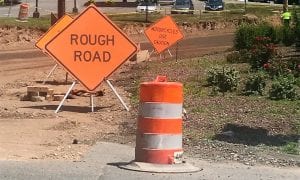BOSTON — A new study says poor public transportation options hurt low-income Latino residents by making it difficult for them to hold jobs, keep medical appointments, and provide for their families.
The report was released last week by the Dukakis Center for Urban and Regional Policy and the community organization Neighbor to Neighbor.
It focused on Latino communities in East Boston, Lynn, Springfield and Worcester and found that nearly 40 percent of 362 respondents said they sacrifice a basic necessity to afford transportation.
The report recommends additional funding for regional transit authorities to expand hours, increase bus frequency, and add new routes.
State Sen. Michael R. Knapik (R-Westfield) said the findings are certainly true, but are indicative of a larger problem here in western Massachusetts.
“The premise is correct,” said Knapik, “Where people need jobs and where there’s a large concentration of individuals, there is a need for transportation, and the need for transportation is critical.”
Here in the Greater Springfield area, the public’s needs are met by the Pioneer Valley Transit Authority (PVTA), which is aware they need more routes at more times to service the population. The problem is money.
“Most of the state transportation funds already go to the urban areas,” said Knapik, adding that there are more opportunities to take the PVTA in Westfield, Springfield, Chicopee and Holyoke than in Agawam and West Springfield. And, he said, they are virtually non-existent in the hill towns.
“Years ago, housing was built near jobs, so people in Holyoke or Springfield or places with factories had tenement apartments nearby,” Knapik said. “Fifty years later, those factories are gone and people have to go farther for work.”
Now, he said, there is a need for public transportation to places like C & S Wholesale, Home Depot, and Walmart, which employ thousands of people.
Knapik said the transportation bill that passed the House and Senate would have helped because it earmarked a significant amount of money to regional transportation.
“We did provide money to the PVTA last year, which was used to prevent a hike in fares,” Knapik said, noting the last fare increase for the PVTA was in 2008.
Knapik said the funds would have given the PVTA bring more resources to more communities, as well as the current population of riders.
The Legislature is expected to take up an amendment proposed by Gov. Deval Patrick to a transportation finance bill that would allow the state’s gasoline tax to rise if tolls on the western portion of the Massachusetts Turnpike are taken down as scheduled in 2017.
Legislative leaders have said they oppose the amendment, while Patrick says he will veto the transportation bill unless the change is made.
On Friday, Patrick vetoed $417 million in transportation and local aid funds, citing the lack of agreement over the transportation bill, which includes higher taxes on gasoline and cigarettes that are needed to balance the $34 billion state budget.
The Legislature could decide this week whether to override those vetoes.





